Can You Donate Plasma If You Have Tattoos?
Discover if an individual with inked skin can be a part of this life-saving activity.
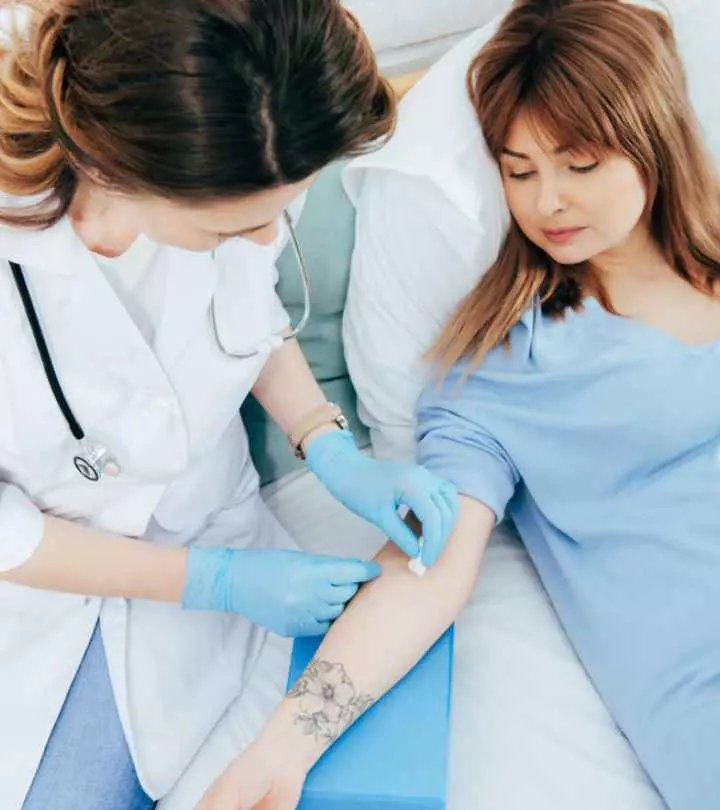
Image: Shutterstock
Blood and plasma donations are potentially life-saving activities, and it is natural to wonder about a common question here, can you donate plasma if you have tattoos? Plasma is a light-yellowish, almost straw-colored liquid component of blood that makes up about 55% of its entire volume. It plays an important role in essential body processes like the formation of blood clots, regulation of body temperature, and transportation of respiratory gasses (1). If you are considering donating plasma but have tattoos, finding the answer to this opening question is highly important, as the donated plasma may help save patients in need of life-saving treatments. For instance, fresh frozen plasma may help save a person who has undergone severe bleeding resulting in shock (1). In this article, we will help you understand the eligibility rules for donating plasma with tattoos. Let us get started.
In This Article
Can You Donate Plasma If You Have Tattoos?
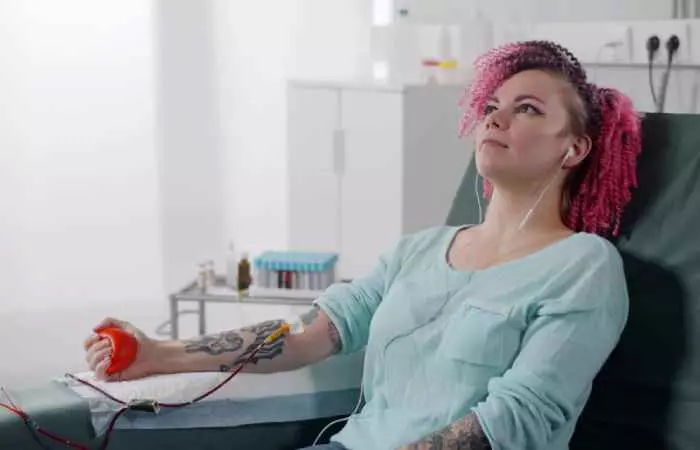
A straightforward answer to this common question is yes! In most cases, having tattoos may not automatically disqualify you from donating plasma. However, since there are no set plasma donation tattoo rules, there are some considerations you need to keep in mind:
- Plasma donation centers may have specific rules regarding the tattoo shop license, recent tattoos and tattoo touch-ups, body piercings, microblading, or cosmetic tattoos. In some places, you may need to wait for a certain period before the donation process.
- The tattoo’s location may also affect your donation eligibility. Some plasma donation centers may not approve the donation if you have a tattoo in an area that is used for vein access during the process. A common area for this is the inner arm.
- Some donation policies may only find plasma donors with tattoos eligible for donations at a state-regulated facility. This is because an unregulated facility may not follow the proper hygiene and safety standards required to prevent the risk of infections.
Ideally, it is recommended to check with the specific plasma donation center you plan to visit, as policies may vary from one to the next. Along with this, it is also important to be honest and transparent about your medical history when completing the pre-donation screening questionnaire.
 Did You Know?
Did You Know?If your body art design is old and the donation center is a state-regulated entity, you may have no problem donating plasma with tattoos. However, the same may not be the case for fresh tattoos. Let us read below to figure out why.
Key Takeaways
- Typically, having tattoos on your body may not disqualify you from donating plasma.
- Donation centers may reject plasma donation if you have freshly inked skin, due to the risk of bloodborne infections, such as hepatitis B, or autoimmune diseases, such as HIV, or a genetic history of heart attacks.
- Post fresh tattoos, centers usually follow a 4-month waiting period to a year before scheduling a blood donation appointment.
Why Can’t You Donate Plasma After Getting A Fresh Tattoo?
Donating plasma after the tattoo process is not allowed due to the risk of bloodborne infections, such as hepatitis Bi A serious blood viral infection that attacks the liver and includes symptoms like dark urine and abdominal pain. and HIV/AIDSi A sexually transmitted disease that affects the body's ability to fight infections and has symptoms like fever and sore throat. (2). When you get a new tattoo, the needle pierces your skin to enter the dermis at almost 100 times per second, creating an open wound (3). This needle, if contaminated, may introduce bacteria into the bloodstream, leading to infection. Therefore, it is recommended to wait until your tattoo is fully healed before donating plasma.
Now, the risk of these infections may also depend on the tattoo parlors you choose for your body art. A study on more than 5000 U.S. college students revealed that getting a tattoo from a licensed tattoo parlor had no risk of hepatitis Ci A blood viral infection that affects the liver by causing inflammation in it, and may include symptoms like loss of appetite. (HCV), a contagious disease. However, this risk was greater in individuals who got inked by nonprofessional tattoo artists (4).
Plasma and blood donation centers often have standard waiting periods after getting tattoos to avoid the risk of these infections. This is a precautionary measure to ensure the safety of both the donor and the recipient of the plasma. But how long can this period be? Let us find out below.
How Long After Getting A Tattoo Can You Donate Plasma?

Different donation centers have different donor eligibility criteria. Therefore, the waiting period for blood plasma donation after getting a tattoo may vary. That said, on average, it may typically be a few weeks to a few months. For instance, some facilities may have a 4-month wait period, while others may follow a 12-month waiting period policy. The purpose of this is to reduce the risk of infectious diseases like HCV that could be associated with the tattooing process (2). Always check with your specific plasma donation center to learn about their policy for this waiting period.
The process of plasma donation involves several steps. Check out the next section to learn what you can expect while doing so, especially as someone with tattoos.
Plasma Donation Process For People With Tattoos

Here is a general idea of what you can expect for your plasma donation process with tattoos:
- Check-In At The Donation Center
Check in with your plasma donation center policy for the amount of time you need to wait before donating plasma after getting a tattoo. This may typically range from a few weeks to a whole year.
- Get Yourself Registered
When you arrive at a plasma donation center after the waiting period, a staff person may ask for documents like proof of address and an identification card. You may also have to complete some paperwork, including a series of questions about your health history. Ensure to disclose any chronic medical condition you may have.
- Undergo Health Screening
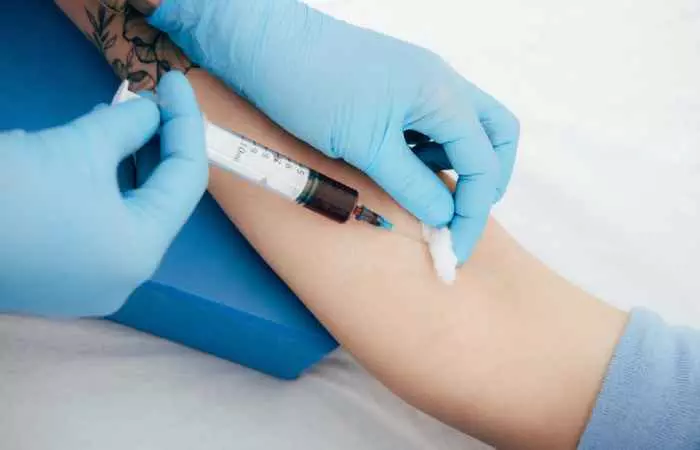
After the registration, a medical staff member may conduct a brief health screening. This generally includes checking your vital signs like temperature and blood pressure and for signs of skin infections. They may also ask you about the date of getting your tattoos and their location to determine if you are eligible for the donation. The staff member may also take a small sample of your blood to check for infectious diseases, such as AIDS, hepatitis, and syphilisi A sexually transmitted bacterial infection, which usually starts as a painless sore which appears on the genitals or the mouth. or ask if you have a genetic history of heart disease in the family. This is a standard safety measure to protect both the donor and the recipient.
A blogger, social worker and author, shared that he had to undergo a lengthy screening process of 3-4 hours as a first-time donor. He also mentioned that the staff asked him about his tattoos. The blogger states in his post, “To ensure that I haven’t been tattooed in the past year, the counselor catalogs the location and design of each of my tattoos. Left inner forearm–The Giving Tree; Right leg–book and vine with words, ‘To live, is to be slowly born’; inside of bottom lip–travel toothbrush (i).”
- Donate Plasma
If you meet all the blood donation eligibility requirements, one of the staff members will take you for the plasma donation process. At the time of donation, they generally clean the person’s inner arms with antiseptic spirit and insert a one-time-use sterile needle into the vein to draw out blood. It is important to ensure at this stage that clean, single-use equipment is employed for the process to stem the risk of contamination from accidental blood transfusion. The professionals will then use a specialized medical device to perform the process of plasmapheresis, which involves separating the plasma from the blood. Once that happens, the remaining blood is returned to the body (5). This may take around 45 minutes to an hour.
 Did You Know?
Did You Know?- Rest And Recover
As a part of doner safety measures, once the process is complete, you are recommended to rest for a short period to ensure you are feeling well and not faint before leaving the donation center. Some centers may also provide snacks and drinks to help replenish your energy and perform a final blood pressure check after the donation.
So, the next time you are worried about whether you can donate plasma if you have tattoos, know that you certainly can! The eligibility of blood donors with tattoos for donating plasma depends on the specific guidelines set by different blood donation organizations and health authorities. While having tattoos generally does not disqualify you from donating plasma, there may be certain restrictions or waiting periods involved to avoid risk factors. For instance, some facilities may not consider you for plasma donation if you get your tattoos from non-regulated tattoo facilities. Similarly, people with fresh tattoos need to wait for a certain period before donating due to the risk of bloodborne diseases like AIDS. Additionally, if you have an infected tattoo, you might have to wait until the infection is gone and the tattoo is fully recovered for safety purposes. Therefore, you must always check with your local blood donation and plasma centers and adhere to their specific requirements to ensure the safety and efficacy of the donated plasma.
Frequently Asked Questions
Are there any specific guidelines for donating plasma if you have multiple tattoos?
No, there are no specific guidelines for donating plasma if you have multiple tattoos. You only need to ensure that your tattoos are healed to avoid the risk of infectious bloodborne conditions like HIV and that you got them from a licensed facility (2). It is also a good idea to refer to the policies of your plasma donation center for more details.
Are there age restrictions for donating plasma with tattoos?
No, there are no age restrictions for donating plasma with tattoos. Generally, anyone over 18 can donate it if they meet all other donation criteria. For instance, they should weigh at least 110 pounds and must pass the medical examination process and be honest about any pre-existing medical conditions.
Do tattooed donors undergo a separate assessment or screening process?
No, tattooed plasma donors do not undergo a separate assessment or screening process. You only will be asked about the age and location of your tattoo to ensure you are eligible for the donation as well as whether it was done in a state-regulated shop. The general screening process for all donors focuses on their overall health, medical history of heart diseases, and lifestyle choices that may affect the safety of the donated plasma.
Illustration: Can You Donate Plasma If You Have Tattoos?
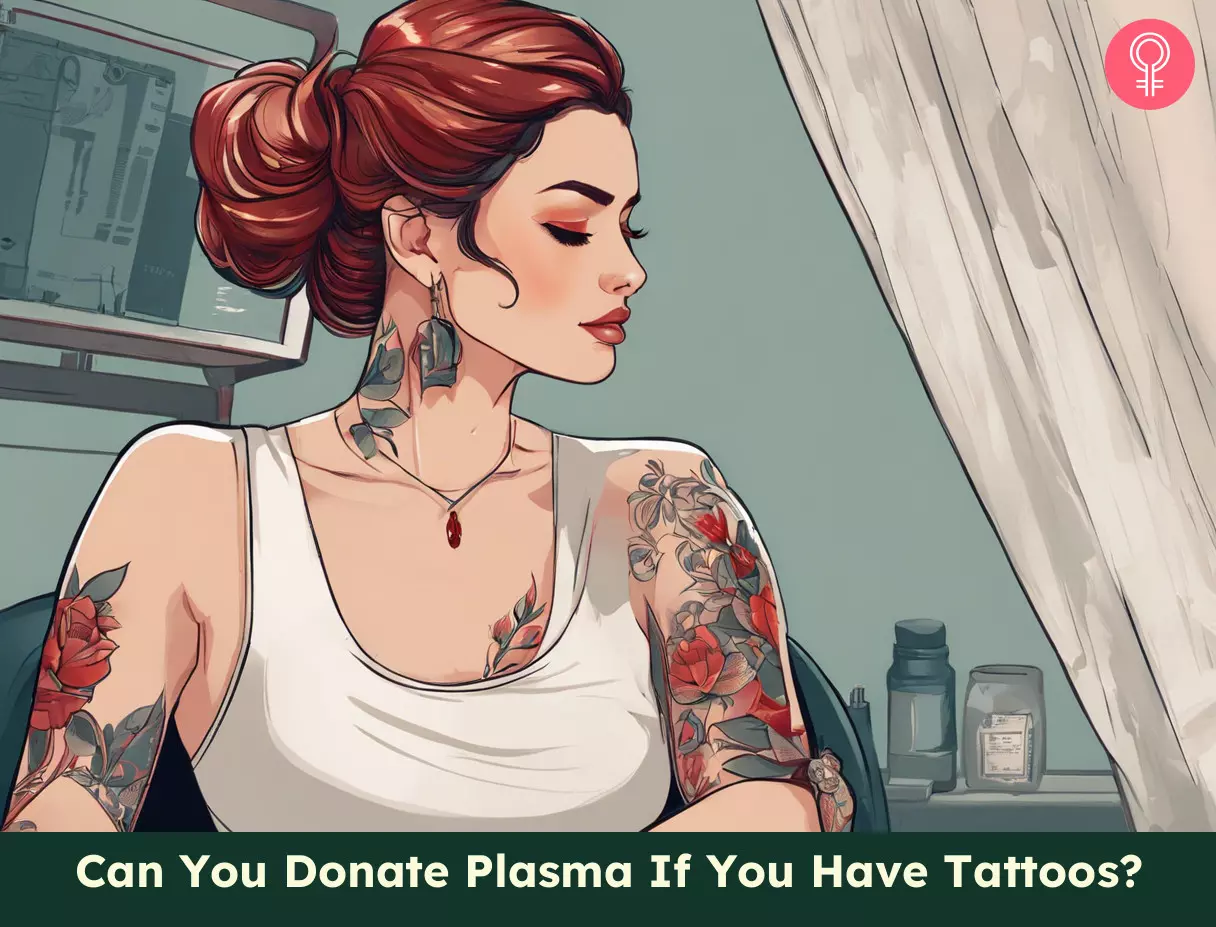
Image: Stable Diffusion/StyleCraze Design Team
In most cases, having tattoos does not mean that you cannot donate plasma at all. However, there are some considerations involved. This video below contains essential information about how the process unfolds. Check it out!
Personal Experience: Source
StyleCraze's articles are interwoven with authentic personal narratives that provide depth and resonance to our content. Below are the sources of the personal accounts referenced in this article.
(i) Donating plasma: diary of an unemployed dude [true story]https://sobrightlyblack.wordpress.com/2017/10/12/donating-plasma-diary-of-an-unemployed-dude-true-story/
References
Articles on StyleCraze are backed by verified information from peer-reviewed and academic research papers, reputed organizations, research institutions, and medical associations to ensure accuracy and relevance. Read our editorial policy to learn more.
- Physiology, blood plasma
https://www.ncbi.nlm.nih.gov/books/NBK531504/ - Tattoo-associated viral infections: A review
https://www.ncbi.nlm.nih.gov/pmc/articles/PMC8549973/ - Tattoo ink nanoparticles in skin tissue and fibroblasts
https://www.ncbi.nlm.nih.gov/pmc/articles/PMC4464189/ - Transmission of hepatitis C virus infection through tattooing and piercing: A critical review
https://www.ncbi.nlm.nih.gov/pmc/articles/PMC4613802/ - Plasmapheresis
https://www.ncbi.nlm.nih.gov/books/NBK560566/
Read full bio of Ashutosh Bairagi
Read full bio of Joyce Joyson
Read full bio of Madhumati Chowdhury
Read full bio of Aparna Harry





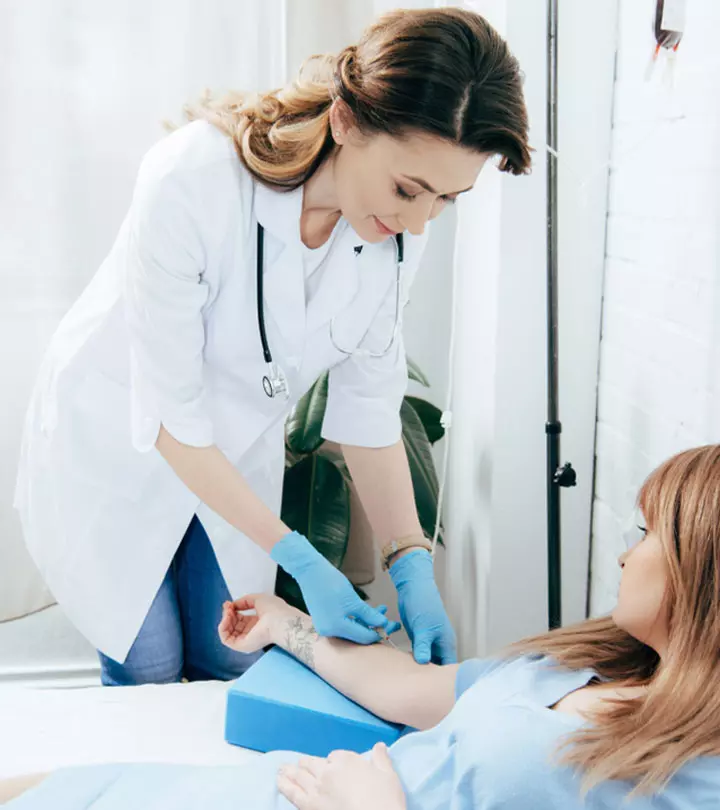










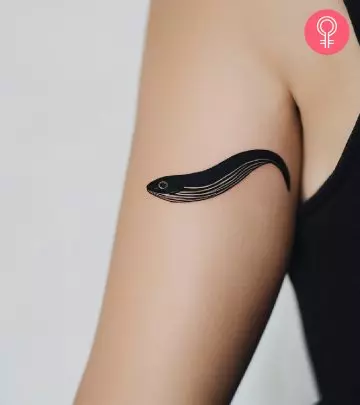




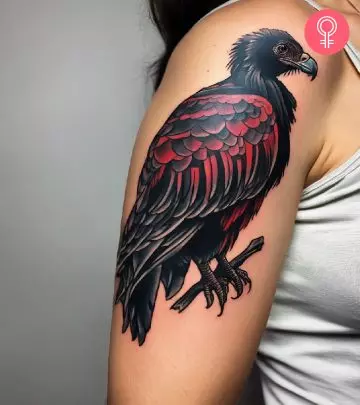
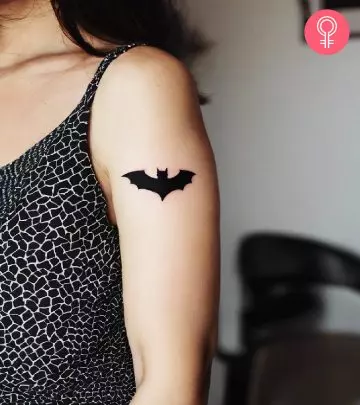
Community Experiences
Join the conversation and become a part of our empowering community! Share your stories, experiences, and insights to connect with other beauty, lifestyle, and health enthusiasts.